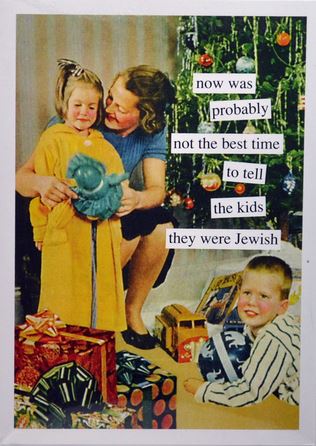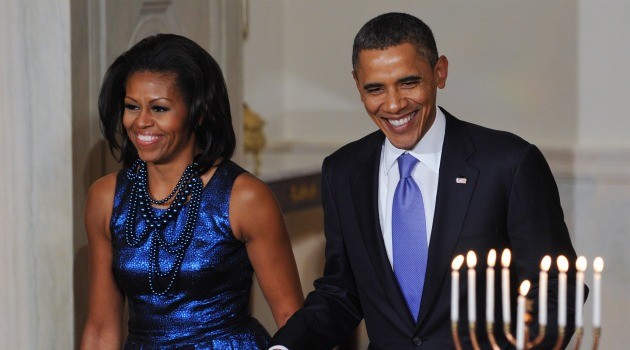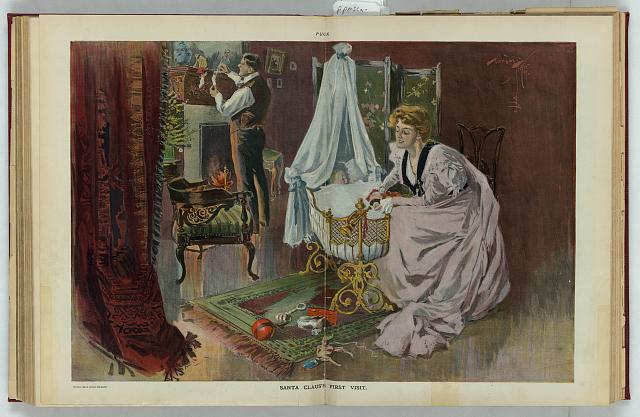Blog Archive
Hanukkah’s History? Perhaps Not What You Thought

Being Jewish during the holidays can be confusing for everyone. This card available in our Museum shop might be just the thing.
With the holiday season comes holiday cheer… for some. Every year among those happily tuning in to holiday stations, are those who grumble and Grinch. Let’s classify them as two separate groups of people: those who have no love of life or cheer( this type of person has been in business since long before the Dickensian model, Scrooge, debuted in 1843), and those who insist that Christmas used to be nice but “now is so commercialized that they start advertising before the Halloween candy is out of the CVS.”
Then there is the special subset of people whose grumbling also extends to Hanukkah.
My parents joined the national effort of Jewish parents everywhere, trying to create a Hanukkah which was festive enough to be special rather than substitutional. They did a great job, but when I reached adulthood the efforts understandably fell off, and I’ve long since joined the churlish ranks of folks who feel the holidays are a marketing ploy- Hanukkah especially.
Just a touch of research however was enough to reveal that I am both undeniably right and completely wrong. In the calendar of Jewish holidays, Hanukkah long played a minor role. The tale however is a good one. Jewish warriors, the Macabees, fought against Hellenistic forces for the right to continue to practice their religion. It is said that when the Macabees regained the Temple, it looked like the sacred light only had enough oil to burn for one night, but that in fact the lamp burned for eight.

The Obamas honor Hanukkah in a White House celebration in 2011. Photo courtesy of the Jewish Daily Forward.
So how did this obscure tale of military success and oil shortage transition to a menorah on the White House lawn? It did begin with Christmas but not the way you think.
Christmas wasn’t always the festive holiday we celebrate today. David Greenberg has even reported that the Puritan settlers of Massachusetts applied a fine for ‘celebrating’ Christmas (they were the 1st kind of Scrooge). However, a rise in fortunes after the Civil War (for some) and an influx of German immigrants who brought holiday traditions, created the intersection of wealth and a festive way to spend it. Slowly Christmas trees, parties, and gift-giving became a nationwide tradition.

Christmas celebrations in the United States may be younger than you thought - not younger than it's major enthusiasts of course. Photo courtesy of the Library of Congress.
According to National Public Radio, Reform Jewish Rabbis in Cincinnati in the second half of the 19th century were the first to realize the potential of this new winter holiday for Jews. Finding that the children of their congregations didn’t have much interaction with the synagogue, these Rabbis introduced Hanukkah as primarily a child’s festival. The same NPR story also suggests that enthusiasm for the new Jewish festival increased again with the influx of Eastern European Jews to America after 1880. These Jews were often fleeing religious persecution and happily took this new opportunity to celebrate their religion without backlash.
So spin those dreidels or sing those carols – either way, you are participating in an American version of an ancient and complicated religion. Why not deck the halls or light the lights?
— Posted by Julia Berick